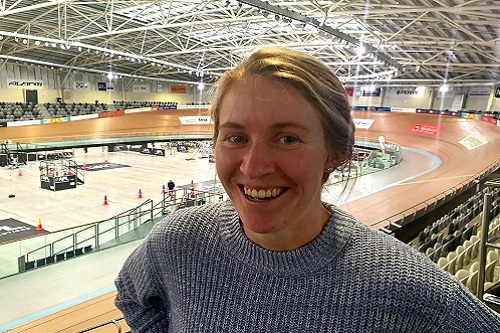Source: University of Waikato
While the Tokyo 2020 Olympic Games are playing out half a world away, a group of University of Waikato researchers are watching on with eager interest.
Many staff and researchers in the University’s Te Huataki Waiora School of Health have a connection to our Olympic athletes.
Dr Shannon O’Donnell is the sports science lab manager for Te Huataki Waiora School of Health, a role she’s been in since 2019. She also works as a teaching fellow in the School of Health.
Part of Shannon’s role is looking after the University’s three sports science laboratories including one at the Avantidrome near Cambridge, where she is based, as well as the Hamilton campus teaching lab and supporting Steven Finlayson who runs the lab at the University of Waikato Adams Centre for High Performance at Mount Maunganui.
These three state-of-the-art facilities are not only used by academics and students, but by High Performance Sports New Zealand (HPSNZ) and other national sporting organisations for training and event preparation.
In the lead up to the Tokyo 2020 Olympics Games, the University of Waikato and other tertiary institutions signed a heat agreement with HPSNZ, providing research expertise and facilities free of charge to support the Olympic athletes’ preparations.
“In a pre-COVID world, our athletes would be travelling overseas to train in other countries to replicate the heat and humidity of Tokyo – but that isn’t an option anymore,” says Dr O’Donnell.
“Instead, we are trying to replicate that in our man-made heat chambers and heated labs, to mirror what they will experience so when they go to the event they have some acclimatisation and experience of that environment.”
Having access to the University’s research expertise is another bonus.
“As sports scientists we are always wanting to offer improvements and ways to support athletes. So it’s a no-brainer that we would offer our space so we can prepare, and hopefully it helps towards getting medals,” says Dr O’Donnell.
“Research and teaching is our passion, and we love sharing that knowledge around the science.”
“Knowing that we’ve got environments that can replicate Tokyo, and [we have] the knowledge if they do have questions, that we are a tiny piece of the puzzle that hopefully helps.”
Shannon originally attended Rotorua Girls High School, and came to Waikato, attracted by the scholarship and academic offerings and the Waikato-Bay of Plenty Magic netball team.
A competitive netball player and barefoot waterskier, Shannon was supported to study at Waikato University with a Sir Edmund Hillary Scholarship.
Understanding sports performance became a passion, and Shannon studied through to PhD level at Waikato, with her research focussing on sleep and recovery and how that relates to sports performance.
A highlight of her PhD was working with the Magic netball team.
“We have connections to high level sport here at Waikato, which is a big drawcard of the programme and the research we do here.”
“It’s very cool knowing we are assisting our athletes.”
She also enjoys teaching as a research fellow – and inspiring the next generation of students with sports science.
Dr O’Donnell says health and sports science at Waikato is a “growing” area of strength for the university.
“We have a lot of expertise across the board at Waikato, with sports scientists working in different areas. A strong part of what our programme does is collaboration with different sporting organisations, with scholarships and programmes.”



